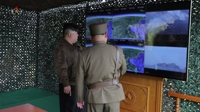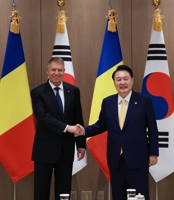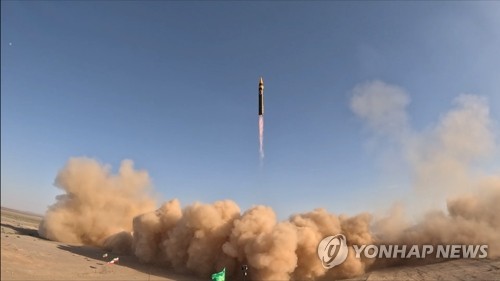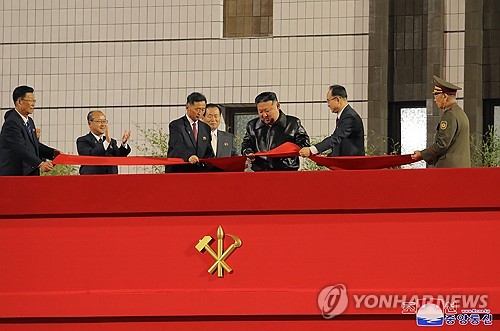(EDITORIAL from Korea JoongAng Daily on July 24)
A myopic energy policy
Due to the scorching heat wave over the country, the Moon Jae-in administration has decided to increase electricity production from nuclear power plants. The government had to take action to help ease deepening concerns about a shortage of power despite the full activation of coal and liquefied gas plants. As demand for electricity exceeded earlier estimates even before an expected peak in August, the government had no other choice but to resort to nuclear plants despite Moon's campaign promise to phase them out.
The government plans to advance the schedule for reactivating the Hanbit No. 3 reactor and Hanul No. 2 reactor, both of which are undergoing maintenance. It also delayed maintenance on the Hanbit No. 1 and Hanul No. 1 reactors, originally scheduled for next month, to after the summer. When taking into account the Hanul No. 4 reactor, which recently finished maintenance, five nuclear plants will supply an additional 5 million kilowatt hours of electricity during the peak time. The government is hurriedly going back to nuclear reactors after energy concerns arose out of the blue.
In the 8th Electricity Demand and Supply Plan for 2017-2031, the government estimated this year's maximum electricity demand at 8,750 kilowatts hours in the summer. But real demand already surpassed that figure last week. Though utility authorities revised their expected maximum electricity demand to 8,830 kilowatts earlier this month, they must raise it once again if the current heat wave continues. Such failures in predicting power demand suggests the government arbitrarily lowered its estimated demand to back up its logic for phasing out nuclear plants.
The demand for electricity is expected to increase in the future as extreme weather becomes more frequent and as the fourth industrial revolution progresses. We cannot but question if the government took that into account before drafting its long-term energy plan. The government's rush to phase out nuclear plants only caused increases in plants based on coal and LNG, which pose serious threats to the environment. Instead, the government plans to expand energy supply through renewable sources, the effect of which has not been proven yet.
Japan offers a good example. Despite the shocks from the Fukushima disaster, Tokyo announced a plan to increase its share of nuclear energy up to 22 percent by 2030 from the current 2 percent. The Moon administration must fix its myopic energy policy if it really wants to avoid a crisis.
(END)
-
 Overdue debut of Korean abstract art pioneer Yoo Young-kuk at Venice Biennale
Overdue debut of Korean abstract art pioneer Yoo Young-kuk at Venice Biennale -
 Relax, immerse yourself in scents at Venice Biennale's Korean Pavilion
Relax, immerse yourself in scents at Venice Biennale's Korean Pavilion -
 S. Korea marks 30th anniv. of Korean Pavilion at Venice Biennale with contemporary art
S. Korea marks 30th anniv. of Korean Pavilion at Venice Biennale with contemporary art -
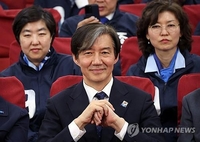 Ex-Justice Minister Cho slams Yoon's statement on crushing election defeat
Ex-Justice Minister Cho slams Yoon's statement on crushing election defeat -
 Artist Lee Bae captures ethereal Korean aesthetics at Venice Biennale
Artist Lee Bae captures ethereal Korean aesthetics at Venice Biennale
-
 Overdue debut of Korean abstract art pioneer Yoo Young-kuk at Venice Biennale
Overdue debut of Korean abstract art pioneer Yoo Young-kuk at Venice Biennale -
 Relax, immerse yourself in scents at Venice Biennale's Korean Pavilion
Relax, immerse yourself in scents at Venice Biennale's Korean Pavilion -
 Artist Lee Bae captures ethereal Korean aesthetics at Venice Biennale
Artist Lee Bae captures ethereal Korean aesthetics at Venice Biennale -
 S. Korea marks 30th anniv. of Korean Pavilion at Venice Biennale with contemporary art
S. Korea marks 30th anniv. of Korean Pavilion at Venice Biennale with contemporary art -
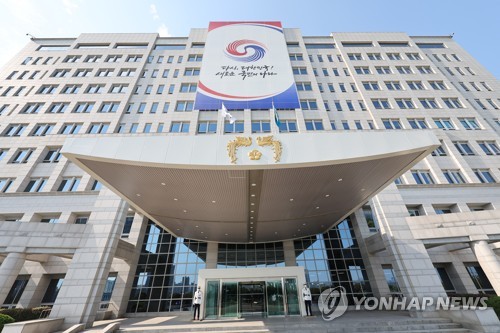 (LEAD) Presidential office denies Moon aides under consideration for PM, chief of staff
(LEAD) Presidential office denies Moon aides under consideration for PM, chief of staff
-
 Hybe says spinoff attempt by subsidiary label revealed clearly
Hybe says spinoff attempt by subsidiary label revealed clearly -
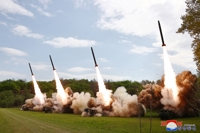 (LEAD) N. Korea says Kim guided simulated nuclear counterattack drill
(LEAD) N. Korea says Kim guided simulated nuclear counterattack drill -
 Hybe launches audit into NewJeans' label ADOR over alleged independence move
Hybe launches audit into NewJeans' label ADOR over alleged independence move -
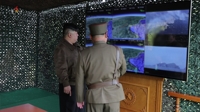 S. Korea warns N. Korea will face end of regime if it uses nuclear weapons
S. Korea warns N. Korea will face end of regime if it uses nuclear weapons -
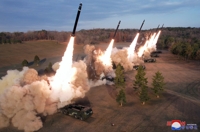 N. Korea says Kim guided simulated nuclear counterattack drills for 1st time
N. Korea says Kim guided simulated nuclear counterattack drills for 1st time
















